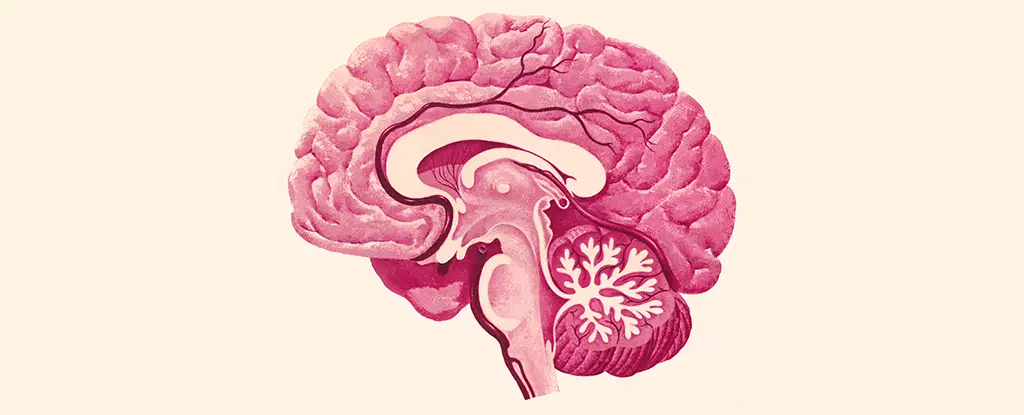Herpes simplex virus type 1 (HSV-1) is often recognized merely as the virus responsible for cold sores; however, its implications extend far beyond the surface. Recent investigations have illuminated the potential effects of HSV-1 on the brain, showing how this common virus can infiltrate the central nervous system (CNS). Researchers from the University of Colorado and the University of Bourgogne have conducted a significant study probing into the pathways through which HSV-1 affects brain function, expanding our understanding of its possible links to severe neurodegenerative conditions, including Alzheimer’s disease.
The study highlights how HSV-1 can enter the CNS via two primary channels—the trigeminal nerve or the olfactory nerve. However, until now, the mechanisms facilitating the spread of the virus within the brain’s complex architecture were poorly understood. In their groundbreaking research, the scientists meticulously mapped the regions of the brain impacted by herpes infection in mice models. Notably, they identified critical areas such as the brain stem and the hypothalamus as hotspots for infection, shedding light on how HSV-1 may disrupt essential functions like heart rate and hormonal balance.
The takeaways from this study are crucial. The brain stem, which oversees vital autonomic processes, and the hypothalamus, a central hub for regulating mood and sleep, show vulnerability to HSV-1. However, the research also reveals that certain regions of the brain, specifically the hippocampus and cortex—areas integral to memory and cognition—remained unaffected. This distinction highlights a complex relationship between HSV-1 and various brain functions, suggesting that while some areas may demonstrate resilience, others could face significant disruption.
An equally revealing aspect of the study was the examination of the brain’s immune response to HSV-1. Microglia, the CNS’s resident immune cells, exhibited inflammation upon interaction with the virus. Intriguingly, the presence of these activated immune cells persisted even after the viral load decreased, indicating a prolonged state of inflammation. Neurologist Christy Niemeyer emphasized that while this persistent immune reaction did not culminate in full-blown encephalitis—a severe inflammation of the brain—it nonetheless raises concerns regarding the long-term functional implications on the affected brain regions.
This ongoing inflammation may play a pivotal role in altering the functionality of the brain’s networks, suggesting that HSV-1 is capable of inducing subtle yet detrimental changes that could predispose individuals to neurodegenerative diseases. With increasing evidence pointing towards a link between HSV-1 and conditions like Alzheimer’s, this study stands as a critical piece of the puzzle in understanding how viral infections can influence brain health.
Understanding the Links to Neurodegenerative Diseases
The research underscores a potential connection between HSV-1 infections and the development of neurodegenerative disorders. It has been proposed that the chronic inflammation triggered by HSV-1 might either initiate or exacerbate the processes underlying diseases such as Alzheimer’s. As Niemeyer pointed out, the sustained activity of inflamed microglia can engender chronic inflammation, a well-recognized catalyst for various neurological conditions.
Researchers are now investigating the overlapping brain regions affected by both HSV-1 and Alzheimer’s disease. This correlation is vital for future investigations aimed at delineating how viral infections may act as potential contributors to cognitive decline. Identifying the interplay between HSV-1 and microglia is essential in comprehending the broader implications for brain health, potentially guiding future therapeutic strategies to mitigate long-term damage.
This pioneering study reveals critical insights into how HSV-1 interacts with the central nervous system, prompting a deeper investigation into its effects on brain health. The implications of HSV-1 extending beyond cold sores into the realm of neurodegenerative diseases are profound. Further research in this area is essential not only to clarify the roles of HSV-1 in brain functionality but also to explore preventative measures and therapeutic interventions that could arise from this knowledge. As science uncovers the intricate connections between viral infections and brain health, it opens up new avenues that could ultimately lead to significant advancements in our understanding and treatment of diseases like Alzheimer’s.


Leave a Reply